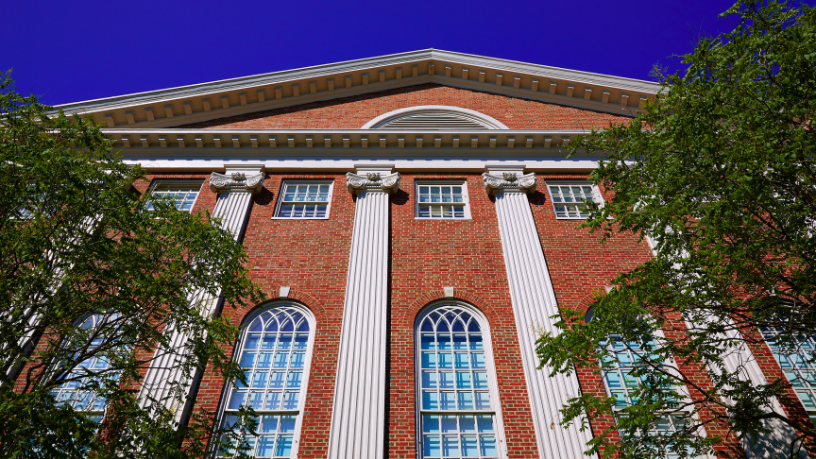The latest dispute between Harvard and the United States government reached a new chapter as the university officially sued the Trump administration. The lawsuit was filed after the Department of Homeland Security abruptly revoked the certification that allows the institution to admit foreign students. According to Harvard, the decision puts about 7,000 students at risk of deportation and represents a direct attack on the university’s academic autonomy. The legal action, filed in the U.S. District Court in Massachusetts, directly responds to what the university considers a legally and educationally unjustified measure.
The case titled Harvard sues Trump administration has gained national and international attention, involving one of the most prestigious universities in the world and challenging academic freedom in U.S. institutions. According to interim university president Alan Garber, the decision was taken abruptly, without legal grounds, and in retaliation for the university’s defense of its independence. For him, the revocation of the certification is unprecedented and threatens the diversity and excellence that define Harvard. The lawsuit seeks an injunction to immediately suspend the effects of the measure.
In justifying the decision, the Trump administration, through Homeland Security Secretary Kristi Noem, accused the university of hosting foreigners allegedly involved in anti-American activities. According to Noem, Harvard allowed these students to participate in protests, threats, and even violent acts against peers and professors. However, the university states that it fully cooperated with previous information requests and that none of the allegations were proven. The central argument in the case Harvard sues Trump administration is that the Department of Homeland Security overstepped its legal and administrative boundaries by imposing the revocation.
The document submitted by the university to the court emphasizes that there is no legal provision for the summary withdrawal of an institution’s certification following an out-of-cycle review. Harvard’s attorneys claim the decision violates due process and represents an authoritarian attempt to control the university’s internal operations. The case Harvard sues Trump administration adds to a series of other clashes between the federal government and higher education institutions resisting political interference in the management of their curricula and admissions policies.
This is not the first time Harvard sues Trump administration. The university had already filed a lawsuit the previous month against the suspension of $2.2 billion in federal funding, which it deemed a maneuver to force changes in its governance structure. The new lawsuit is directly connected to that dispute and reinforces the tension between the government and universities seen as independent or critical of the current administration. The retaliation, according to Harvard, is an attempt to weaken critical and plural higher education.
International students make up a vital part of Harvard’s academic community and significantly contribute to research, cultural diversity, and innovation. The case Harvard sues Trump administration is therefore also a defense of these students, many of whom now face uncertainty regarding their legal and academic status. The university stated in an official statement that it will provide all the legal and institutional support needed to ensure these students remain in the United States.
Legal experts see the Harvard sues Trump administration case as a decisive test of the limits of executive power over educational institutions. The final ruling may set important precedents concerning university autonomy, the role of immigration in higher education, and the rights of foreign students in educational programs. Should Harvard succeed in obtaining the injunction, other institutions may follow suit to protect their international students from undue interference.
The ongoing legal dispute in Harvard sues Trump administration is still in its early stages, but it is already generating reactions across various sectors, including other universities, civil rights organizations, and members of Congress. With the academic year fast approaching, the urgency of the court’s decision is even greater. The legal battle goes beyond Harvard’s gates and represents a strong defense of education as a space for freedom, inclusion, and critical thinking—values that Harvard promises to uphold even in the face of governmental pressure.
Author: Halabeth Gallavan







